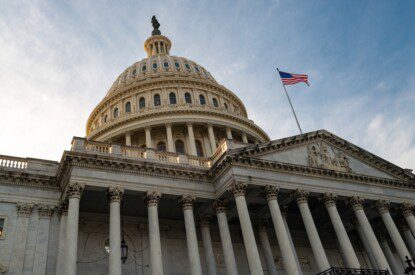Passed in 1931, the Davis–Bacon Act established requirements for paying local prevailing wages on public works projects for laborers and mechanics. The goal was to keep wages for public works projects in line with private sector projects, and it impacts contractors and firms engaged in building, altering or repairing public buildings or public works.
On August 8, 2023, the Department of Labor published updates to the Davis-Bacon and Related Acts (DBRA) Regulations, which will take effect on October 22, 2023. The updates span hundreds of pages. Many of the changes are minor revisions to language and definitions, but several items may definitely impact business as usual. Among them:
- If a significant portion of work is done at a secondary site, that work will also be covered by Davis-Bacon. These sites include home offices and fabrication plants.
- Contractors can be held responsible for a lower-tiered subcontractor’s Davis-Bacon violations, and penalties could include debarment.
- Contractors will be required to provide telephone numbers and email addresses upon request, and also keep all Davis-Bacon related documents for three years after project completion.
- The DOL can decide that a contract was incorrectly exempted from Davis-Bacon, and retro-actively rule that requirements should have been enforced.
In addition, the updates blur the lines that existed between rural and metropolitan wages. Previously, rural labor wages were based on prevailing rural wages. The new changes accept that rural laborers may commute to cosmopolitan areas, so that the prevailing rural, metropolitan, state and local wage rates can be considered, depending on circumstances.
While some changes are immediate and clearly defined, the implications of others will be clarified over time:
- Periodic updates on prevailing wage rates will be based on total compensation data from the Bureau of Labor Statistics Employment Cost Index (ECI), with the growth rate based on the change in the ECI total compensation index.
- In cases involving fringe benefits, contractors will be required to annualize the worker’s benefits across all hours worked on the project. In addition, contractors cannot take Davis-Bacon credit for their expenses incurred in administering fringe benefit plans.
- The DOL is also expanding the suite of measures it can take in response to violations, particularly contractors or subcontractors who retaliate against workers.
What’s the main thing to take away from these recent updates? Despite its substantial length, the Final Rule is a collection of seemingly small and manageable changes — but which have the potential to increase risks of penalty to those who do not adopt them.
Talk To HORNE
At HORNE, our Construction team excels at giving contractors and construction firms the guidance and advice they need to ensure that they are in compliance with the local, state and federal regulations that govern their business. Whether you’re wrestling with Davis-Bacon, tax, labor laws, or other issues, HORNE is ready to help you navigate today’s complex regulatory environment with ease and confidence. Contact us today to arrange a complimentary, no-obligation consultation.







